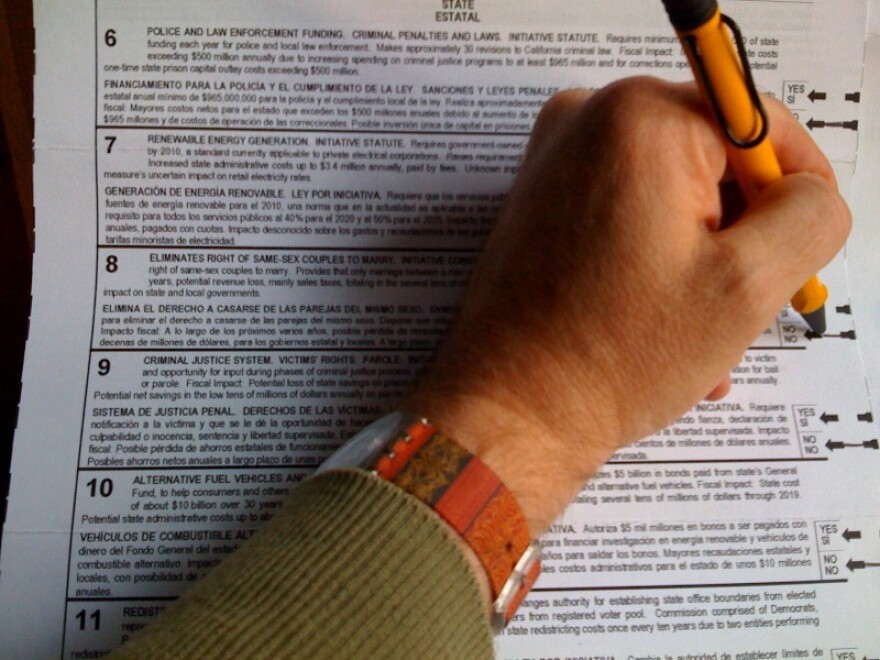Idaho Matters is answering your questions about voting in the 2022 midterm elections. This week a listener asked us about the contested races for the College of Western Idaho:
How do we learn about the contested races for the College of Western Idaho? We have never seen any discussion or contrasting views of these folks.
We talked with Kevin Richert, senior reporter and blogger with Idaho Education News, to help us answer this question and navigate this specific election.
CWI is no stranger to elections
The College of Western Idaho is the largest community college in the state, serving about 30,000 students at campuses and classrooms all across the Treasure Valley. Its annual budget exceeds $50 million.
CWI was created in 2007 when voters in Ada and Canyon counties passed a measure to allow its formation. Before then, the Treasure Valley was the largest population center in the nation without its own community college.
It's now serving about 30,000 students and has campuses and classroom sites scattered all around the Treasure Valley.
What’s at stake in the CWI election?
CWI has a five-member board of trustees that act as a governance body. The role of a board of trustees is to provide oversight to monitor the financials and make sure the college remains accredited. These positions are unpaid and are supposed to be nonpartisan.
In the upcoming November election, four of the five trustee seats are on the ballot. With the majority of seats up for grabs, the balance of power could change dramatically with this election.
Can trustees control the college or its policies?
Trustees can do a lot of things if they so choose – that played out at North Idaho College in Coeur d'Alene just a few years ago.
In 2020, three trustees aligned with the local Republican Party were elected at the North Idaho College and eventually fired the president. Infighting between these three newly-elected trustees and the other two has created a lot of turmoil, putting the college’s accreditation into jeopardy. It has even affected enrollment and charitable giving and led to other top administrators resigning.
With that backdrop in mind, incumbents and their supporters here in the Treasure Valley are concerned that a similar kind of election could unfold at CWI.
Are candidates supposed to be nonpartisan?
In this election, four candidates are aligned with the Republican Party and discussing conservative principles. They're talking about reducing the property tax that CWI collects and they're talking a lot about Boise Pride and CWI’s presence at the Boise Pride Festival in September. A student group was at Pride, but CWI put no tax dollars into sponsoring or supporting the Pride event.
They're also focusing on career-oriented education and getting away from what they're describing as “agenda-driven education.”
The three incumbents are talking about a very different slate of topics. They are focusing on how to develop campuses in Nampa and downtown Boise and how to ensure that the college remains affordable for students.
Students currently pay $139 per credit hour to take a class at CWI and that tuition has not increased in seven years. The incumbents are saying that if they try to reduce the property tax levy, that money will have to somehow be replaced, causing a tuition increase or a reduction in student scholarships. This could pass the cost from property taxpayers to students.
Both sides are presenting a very different vision for where the college stands and where the college is going.
Where can people find out more about the candidates?
Kevin wrote a detailed analysis breaking down the election and politics of the race.
Betsy Russell, the Boise Bureau Chief at the Idaho Press, also wrote a really comprehensive story with more details about all nine candidates running for the four trustee races.
This project is part of the work of America Amplified, an initiative funded by the Corporation for Public Broadcasting to support community engagement journalism in public media.



